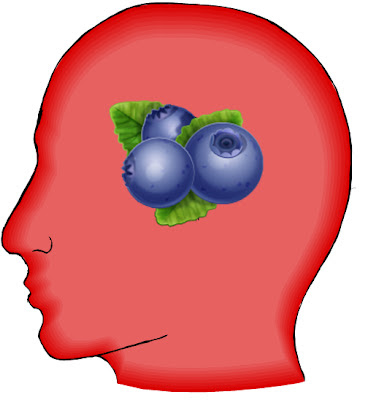
Heard about the berry-brain connection?
Strong scientific evidence continues to reinforce the connection between berries and health. It’s led some to call these high-nutrition berries “brainberries”, the latest moniker for potent berries like blueberries and strawberries that, when integrated into a daily diet, may help preserve and protect the brain as we age. The latest brain-berry research is taking us further in our understanding of a devastating problem affecting an aging population.
 |
| Listen the Bar Harbor Group member Barabra Shukitt-Hale at the American Chemical Society. |
Barbara Shukitt-Hale, Ph.D., of the USDA, Human Nutrition Research Center on Aging at Tufts University, recently shared her contribution to this research on a podcast at the American Chemical Society. Shukitt-Hale’s research focuses on the science behind the value of eating berry fruits, and her findings, which appear in the Journal of Agricultural and Food Chemistry, suggest that eating berries has beneficial effects on the brain and may help prevent age-related memory loss and other changes such as Alzheimer’s disease.
Shukitt-Hale is a valued member of the Bar Harbor Group, a group of top scientists from the U.S. and Canada that meet in Bar Harbor, Maine each year to present research into the connection between a blueberry-rich diet and disease prevention. Members have been a force behind research into Azhiemer’s disease, diabetes, heart disease, vision health and metabolic syndrome. This past fall, Shukitt-Hale presented work at the Bar Harbor Summit concerning memory and motor function and their connection with blueberries.
On the podcast, Shukitt-Hale explains that the high antioxidant benefit is what acts on the part of the brain responsible for cognitive function. Berries contain high levels of antioxidants (with their dark phyto-rich skin, wild blueberries are leaders in antioxidants). She also points out that “…berry fruits change the way neurons in the brain communicate.” These changes in signaling, she says, can prevent inflammation in the brain, the key to preventing neuron damage that specifically affects cognitive function. While ongoing research is required to fully understand this mechanism, we are closer than ever to a major health message that could help millions.
Brain Benefits Now & Later
Reducing Alzheimer’s disease can translate into reduced health care challenges for families, lowered costs of care, and improved quality of life for millions. Today, 5.4 million Americans are living with Alzheimer’s disease and it is the sixth leading cause of death. According to the Alzheimer’s Association, the direct costs of caring for those with Alzheimer’s or other dementias to American society will total an estimated $200 billion in 2012.
Should we change our behavior based on the research of Shukkit-Hale and the recent findings from the Nurses Health Study?
We should. If you are not eating berries in your daily diet, begin. Even if we have more to understand about the mechanism behind the berry benefits, increasing our fruit and veggie intake with a focus on berries is, according to the best experts in the field, the right move. Everyone can reap benefit from berries, and bumping up your intake is easy – there’s simply no downside, and the upside can be huge.
Short-term benefits: Berries, namely the antioxidant leader wild blueberries, are considered brain food because their cognitive benefits can keep our brains working whether we are having fun or we are hard at work. Berries’ immediate brain benefits are a result of being well-rounded: they are a low GI food as well as a low calorie, high-fiber food that keeps weight and blood sugar levels in check. They also provide essential brain nutrients that support mental clarity and enhance performance in the here and now.
Long-term benefits: The most compelling evidence that connects berries and diet suggests that we could prevent the onset of Alzheimer’s by eating more. Just a serving per day provides the benefit. Even for those who are not destined to have Alzheimer’s, the most recent research indicates that a diet that includes berries may still preserve brain function as we age by preventing memory loss and loss of motor function, and it could help decrease depression.
A Serving a Day: For Your Brain Health
In the case “brainberries” more is actually better. But according to researchers, just one serving a day of wild blueberries can translate into advantages to the brain – they are that powerful. Do you know what constitutes a serving?
Q: One serving of wild blueberries is equal to:
a: 12-oz bag of berries
b. 1 cup of berries
c. ½ cup of berries
Answer: c. While the definition of a serving depends on your age and gender, just ½ cup is considered a serving size for most people. Want to do something good for your brain? Just eat ½ cup of delicious, sweet, tangy wild blueberries today.
Interested in other benefits? Get the FAQs about Blues.




